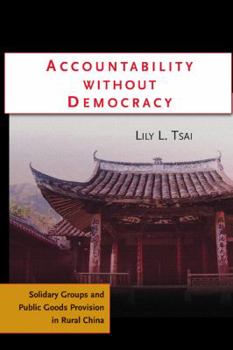Accountability Without Democracy: Solidary Groups and Public Goods Provision in Rural China
(Part of the Cambridge Studies in Comparative Politics Series)
Select Format
Select Condition 
Book Overview
Examines the fundamental issue of how citizens get government officials to provide them with the roads, schools, and other public services they need by studying communities in rural China. In authoritarian and transitional systems, formal institutions for holding government officials accountable are often weak. The state often lacks sufficient resources to monitor its officials closely, and citizens are limited in their power to elect officials they believe will perform well and to remove them when they do not. The answer, Lily L. Tsai found, lies in a community's social institutions. Even when formal democratic and bureaucratic institutions of accountability are weak, government officials can still be subject to informal rules and norms created by community solidary groups that have earned high moral standing in the community.
Format:Paperback
Language:English
ISBN:0521692806
ISBN13:9780521692809
Release Date:August 2007
Publisher:Cambridge University Press
Length:368 Pages
Weight:1.20 lbs.
Dimensions:0.8" x 6.0" x 9.1"
Customer Reviews
0 rating





